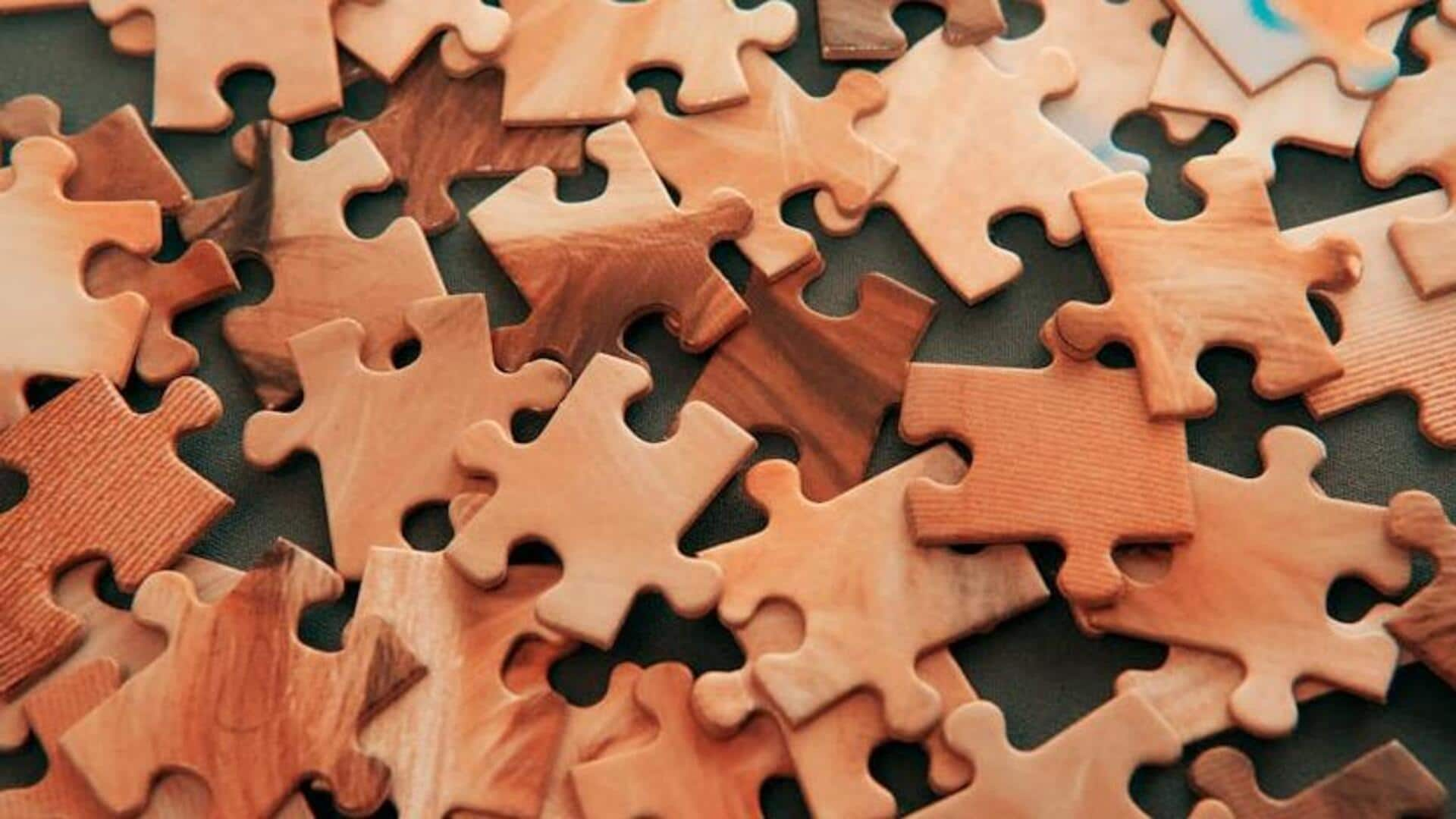
5 ways puzzles can grow your patience
What's the story
Jigsaw puzzles are more than just a pastime, they can be an effective tool to enhance patience.
Puzzle activities require focus, attention to detail, and perseverance. These qualities can help you develop greater patience over time.
By dedicating time to solving puzzles, you could learn to appreciate the process instead of rushing towards the end goal.
Here are five ways jigsaw puzzles can help boost patience.
Beginner approach
Start with smaller puzzles
Starting with smaller puzzles is a practical way to build your patience gradually.
If you start with a puzzle with fewer pieces, you will be able to experience completion without feeling overwhelmed.
This way, you can develop your problem-solving skills and encourage persistence as you progress to more complex puzzles over time.
Goal setting
Set realistic goals
Setting realistic goals while working on a jigsaw puzzle is essential to stay motivated and build patience.
Dividing the task into small parts, or giving a specific period to finish it, can save you from getting frustrated.
This way, you learn how to take it slow and enjoy every step of it.
Mindful engagement
Practice mindfulness
Practicing mindfulness while working on jigsaw puzzles enhances concentration and patience.
As you focus on each piece, its shape, color, and fit, you go into a meditative state that calms your mind.
This mindful engagement helps reduce stress levels and increases your ability to remain patient throughout challenging tasks.
Team effort
Work collaboratively
Working together on jigsaw puzzles promotes teamwork and shared problem-solving experiences that develop patience.
When more than one person pitches in their perspective, it's easier to solve tough sections of the puzzle as a team.
This collaborative effort promotes communication skills, while also teaching people how to patiently wait for others' input.
Learning from errors
Embrace mistakes as learning opportunities
Embracing mistakes while solving puzzles is key to building patience through learning opportunities rather than failures or setbacks alone.
Identifying errors offers valuable insights into which strategies work best, enabling you not just to hone your skills but also build the resilience required to deal with future challenges patiently.